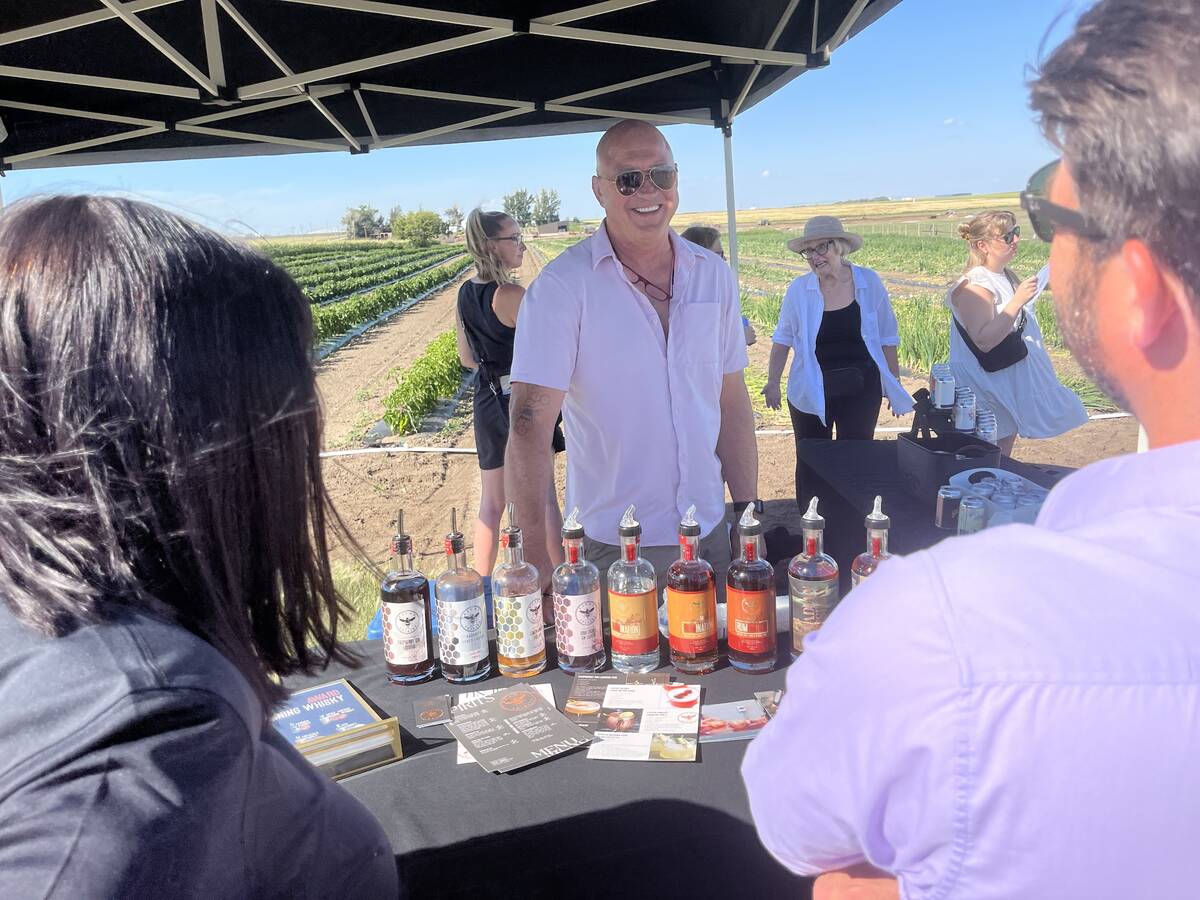Opposition rising Industry representatives feel protection order will impede development
MEDICINE HAT, Alta. — Residents of southeastern Alberta and southwestern Saskatchewan fear an emergency protection order to protect sage grouse is only the beginning of conservation groups’ efforts to shut down development.
About 160 people attended a meeting here June 26 to hear speakers discuss the rising influence of conservation and environmental protection groups.
Their efforts have affected economic activity in Canada and the United States and resulted in unwieldy and unworkable regulations that stymie development, subdivision and progress, the speakers said.
Three petitions at the meeting called for revoking and rewriting the Species At Risk Act (SARA), the sage grouse emergency protection order (EPO) and a subsequent amended strategy for sage grouse in Canada.
Read Also

From farmer to award-winning distiller
Pivot Spirits showcases transition from farmer to distiller with provincial award-winning results in Alberta for Lars Hirch
The federal government’s emergency protection order, which went into effect in February, affects 1,700 sq. kilometres and puts restrictions on public land where fewer than 100 sage grouse now nest at the northern edge of their range.
It is the first time the government has issued an EPO to protect an endangered species and was widely thought to be prompted by a court case launched by several environmental groups.
“I think what we want is, put this thing on hold temporarily,” said Western Stock Growers Association president Aaron Brower, who lives in the region affected by the EPO.
“We all want to see the birds and we all want to see the plants and all that. That’s not what it’s about. We need to stop and take a step back and put a little common sense into it. OK, maybe there’s some measures that need to be a little bit more firm, but not so radical.”
Kevin Redden, manager with the City of Medicine Hat’s energy division, said after the meeting that the EPO may cost the city $40 to $50 million in lost revenue because the city can’t develop oil and gas on its holdings in the affected area. Reclamation work on other wells is also affected.
“We have access to our existing (oil and gas operations.) We’re able to undertake our operations, but our future development potential is gone,” said Redden.
“Our reclamation has to be done under permit now. We haven’t tested the SARA permit process, so we don’t know what’s going to happen, but the EPO prevents us from killing or moving native vegetation.”
Redden said the city has participated in efforts to retain sage grouse populations and protect their habitat, including assistance in translocating birds from Montana to Alberta.
Ranchers Keith and Wanda Reesor talked about the lack of consultation with area residents before the EPO was issued, as well as its onerous and potentially unnecessary requirements for pointed fence posts, lower fences with smooth top wires and noise restrictions.
The sage grouse situation has led to the formation of Sustainable Canada, which calls itself a common sense conservation group and has the stated mission to “advocate economic, social and environmental sustainability to maintain, harvest and protect our resources, thus preserving our heritage for present and future generations of Canada.”
Elizabeth Nickson, journalist and author of Eco-Fascists: How Radical Conservationists Are Destroying Our Natural Heritage, said Canadians are experiencing “a gentle disallowing” of development and rural activity that drives people to cities.
She said land trusts like those undertaken by the Nature Conservancy of Canada are steadily increasing. The accompanying reductions on economic activity and food production are “ a major drag on our economy.”
Medicine Hat MP LaVar Payne said he and Cypress Hills-Grasslands MP David Anderson have talked to the federal environment minister about EPO concerns.
He said it would be best to change SARA, but that was unlikely. But they are working with Ottawa to mitigate the impacts.















